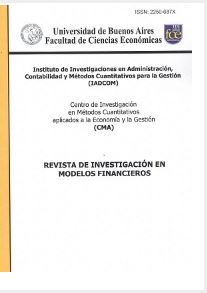LA COGNICIÓN ESTRATÉGICA: APRENDIZAJE, METACOGNICIÓN Y DINÁMICA ESTRATÉGICA-OPERACIONAL
Resumen
Las organizaciones humanas de todo tipo pueden ser consideradas como sistemas psicosociotécnicos complejos (SPSTC) que, en su Dinámica Estratégica-Operacional, deben continuamente desafiar sus propios mapas mentales para no caer prisioneras de paradigmas que pudieron ser exitosos en el pasado pero que ya no sirven más. Esto es lo que llamamos “Cognición Estratégica”.
Los mapas mentales más importantes son aquellos con los cuales la organización formula su estrategia, sus propósitos fundamentales y los mapas mentales de los que se derivan pirámides de objetivos que ligan esos propósitos fundamentales con la acción concreta.
En este sentido, toda estrategia, propósito fundamental y pirámide de objetivos orientados a la acción deben ser considerados como “construcciones interpretativas provisorias” que deben poder ser abordadas desde varios niveles y teorías de aprendizaje.
Estos niveles son: 1. Aprender, 2. Aprender a aprender, 3. Aprender a desaprender, 4. Aprender a reaprender y 5. Aprender nuevas maneras de aprender. Estas teorías son: la Teoría Directa, la Teoría Interpretativa y la Teoría Constructivista.
Para incorporar estos conceptos en las organizaciones humanas se requiere un nuevo abordaje de la cognitiva: la Cognición Estratégica que es aquel en que el SPSTC se convierte en el catalizador del desafío de los mapas mentales para lograr una Cognición Estratégica comprendida, compartida y comprometida que maximice la Inteligencia Colectiva de ese sistema.
Citas
Bateson, G. (1958). Nave. “The culture of the Iatmul people of New Guinea as revealed through a study of the ‘naven’ ceremonial”. Stanford: Stanford University Press.
Bateson, G. (1985). “Pasos hacia una ecología del espíritu. Una aproximación revolucionaria a la autocomprensión del hombre”. Buenos Aires: Carlos Lohlé.
Bateson, G. (2001). “Espíritu y naturaleza”. Buenos Aires: Amorrortu.
Brown, A. (1987). “Metacognition, executive control, self-regulation, and other mysterious mechanisms”. En Weinert, F.E.; Kluwe, R.H. (eds.). Metacognition, motivation, and understanding. Hillsdale (NJ): Lawrence Erlbaum Associates. Pp. 65-116.
Flavell, J.H.; Miller, P.H.; Miller, S.A. (2002). “Cognitive development”. (4th edition). Upper Saddle River (N.J.): Prentice Hall.
Fodor, J.A. (2000). “The modularity of mind”. (11th ed.) Cambridge (MA): The MIT Press.
Houdé, O. (2003). “Aprendizaje. Psicología”. En Houdé et al., op. cit., pp. 25-29.
Levy, A.R. (2000). “Por qué ganan los que ganan. Estrategia y psicología del desarrollo económico empresario. (Y lo que le falta a muchísimas empresas)”. Buenos Aires: Levy Marketing Press.
Levy, A.R. (2003). “Liderando en el infierno. Competitividad de empresas clusters y ciudades”. Buenos Aires: Paidós.
Levy, A.R. (2007) “Estrategia, Cognición y Poder: Cambio y alineamiento conceptual en sistemas psicosociotécnicos complejos”, Buenos Aires, Granica
Levy, A. R. (2012) “PENTA / Innovación: Desarrollo Competitivo, Alineamiento Estratégico y Gestión del Cambio – DAG”, EDICON, Buenos Aires.
Levy, A.R. (2013a) “Estrategia / La Razón y la Emoción: El modelo base de la estrategia empresarial, militar, política, social o ambiental”. Buenos Aires. EDICON
Levy, A.R. (2013b) “El secreto de Cancún: Métodos y herramientas para potenciar la viabilidad del futuro de tu empresa”. Buenos Aires. Empresa Activa.
Levy A.R. (2014) “Cómo hacen los que hacen Planeamiento de Negocios”. Buenos Aires. EDICON.
Levy, A. R. (2015 a.), “Cómo hacen los que hacen Planeamiento de Negocios”, Buenos Aires, EDICON.
Levy, A.R. y Schlanger, K., (2015 b), “Dinámica Empresarial: La gestión de los cambios cruciales para el colapso o la creación de valor”, Buenos Aires, EDICON.
Levy, A.R. (2016), “Metzadá: El modelo sociocognitivo sistémico del proceso de toma de decisiones estratégicas”. Buenos Aires, EDICON.
Levy, A.R. (2017), “StartUps: El caso 123Seguro”, EDICON, Buenos Aires.
Levy, A.R. (2018 a), “Readiness: La Era del Instante: vulnerabilidad o colapso de las empresas cuando cada vez es tarde más temprano”, EDICON, Buenos Aires.
Levy, A.R. y Franco, H. (2018 b) “El Proyecto Directriz de la Alta Dirección”: Top Management´s Project Management”, EDICON, Buenos Aires
Levy, A.R. y Terreno, M.F. (2019 a) “El Mito del Liderazgo: Morgue de Almas o Banda de Hermanos. Una visión crítica del liderazgo como capacidad humana extremadamente difícil de desarrollar a pesar de que digan lo contrario”, EDICON, Buenos Aires.
Levy, A.R. (2019 b). “Río Rojo: Viabilidad Empresarial en la Era del Instante, Editorial El Lector, Asunción de Paraguay
Levy, A.R., (2019 c). “Psicología Empresaral: la perpectiva humana de la Dinámica Estratégica-Operacional”, EDICON, Buenos Aires
Mateos, M. (2001). “Metacognición y educación”. Buenos Aires: Aique.
Melot, A.M. (2003). “Metacognición. Psicología”. En Houdé et al., op. cit., pp. 290-292.
Pérez Echeverría, M., Mateos, M., Pozo, J. I., & Scheuer, N. (2001). En busca del constructivismo perdido: Concepciones implícitas sobre el aprendizaje. Estudios de Psicología, 22 (2), 155-173.
Pitrat, J. (2003). “Metacognición. Inteligencia artificial”. En Houdé et al., op. cit., pp. 293-295.
Pozo, J.I.; Rodrigo, M.J. (2001). “Del cambio de contenido al cambio representacional en el conocimiento conceptual”. En Infancia y aprendizaje, Vol. 24, Nº 4, 407-423.
Sternberg, R.J. (1984). “The triarchic mind. A new theory of human intelligence”. New York: Penguin Books.
Vosniadou, S. (1994). “Capturing and modeling the process of conceptual change”. En Learning & Instruction, 4, 45-69.
La aceptación de un original por parte de la revista implica la cesión no exclusiva de los derechos patrimoniales de los autores en favor de la Revista de Investigación en Modelos Financieros, quien permite la reutilización del contenido bajo una licencia Creative Commons:
Atribución-NoComercial-SinDerivadas
CC BY-NC-ND
De esta manera, el material se puede compartir y adaptar, siempre que se cite la autoría y la fuente original de su publicación (revista y URL de la obra), no se use para fines comerciales y se mantengan los mismos términos de la licencia.


